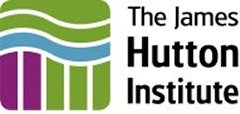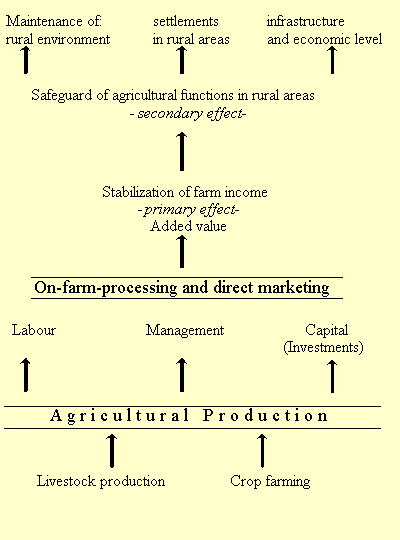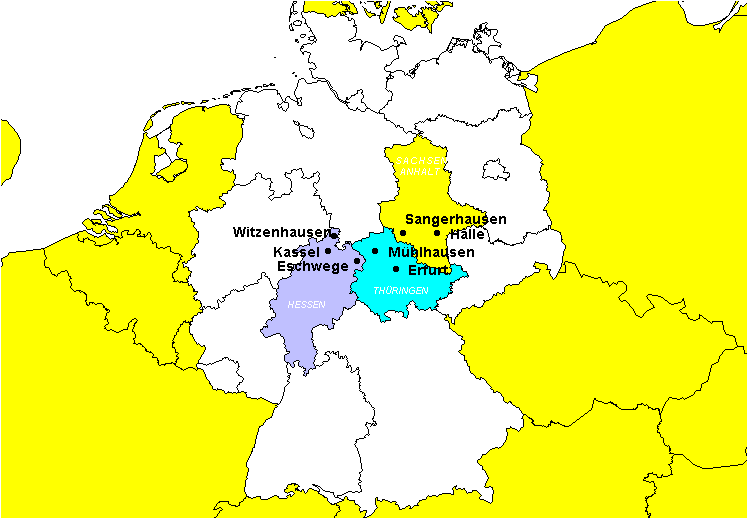 The James Hutton Institute
The James Hutton Institute
This page is no longer updated. The Macaulay Land Use Research Institute joined forces with SCRI on 1 April 2011 to create The James Hutton Institute.
 Hindelang - Nature & Culture - an Alliance of Extensive Mountain Farming with Lasting Tourism
Hindelang - Nature & Culture - an Alliance of Extensive Mountain Farming with Lasting Tourism The district of Hindelang, located in the southwestern part of the Bavarian Alps, has attracted visitors for more than a century. In that time, some 80 per cent of its 5,000 inhabitants have become, at least indirectly, economically dependent on tourism. Today, Hindelang is one of the major resorts in the Bavarian Alps. The main attraction for the tourists is the landscape. Some 85 per cent of that area is protected as nature reserve or area of outstanding natural beauty. The area is famous for
its rich ecological diversity, which is closely linked with the traditional management by generations of farmers. The steep hillsides and damp meadows are, however, not suitable for the degree of mechanisation enjoyed by the agro-industry in the lowlands, and the compensation allowances paid to the disadvantaged areas by the EC have not been sufficient to prevent economic decline. In the Hindelang district, the number of farming operations has fallen from more than 200 to around 90. As a result, the areas most difficult to farm, which are the very ones harbouring the most valued Alpine flora
and fauna, were being left fallow and began reverting to scrubland. The tourist resort of Hindelang realised that this process could lead to the gradual disappearance of the outstanding natural beauty of its landscapes and, as a consequence, to the loss of much of the attraction for its guests. Inspired by the conservation programmes for cultivated landscapes which the Bavarian state government first began to offer in the late eighties, Hindelang arranged for the Bund Naturschutz in Bayern (Association for the Conservation of Nature in Bavaria) to map all the ecologically valuable areas,
including the entire 1200 hectares (about 2965 acres) of farmland. The mapping subsequently enabled Hindelang to make the best possible use of the state programmes.
The district of Hindelang, located in the southwestern part of the Bavarian Alps, has attracted visitors for more than a century. In that time, some 80 per cent of its 5,000 inhabitants have become, at least indirectly, economically dependent on tourism. Today, Hindelang is one of the major resorts in the Bavarian Alps. The main attraction for the tourists is the landscape. Some 85 per cent of that area is protected as nature reserve or area of outstanding natural beauty. The area is famous for
its rich ecological diversity, which is closely linked with the traditional management by generations of farmers. The steep hillsides and damp meadows are, however, not suitable for the degree of mechanisation enjoyed by the agro-industry in the lowlands, and the compensation allowances paid to the disadvantaged areas by the EC have not been sufficient to prevent economic decline. In the Hindelang district, the number of farming operations has fallen from more than 200 to around 90. As a result, the areas most difficult to farm, which are the very ones harbouring the most valued Alpine flora
and fauna, were being left fallow and began reverting to scrubland. The tourist resort of Hindelang realised that this process could lead to the gradual disappearance of the outstanding natural beauty of its landscapes and, as a consequence, to the loss of much of the attraction for its guests. Inspired by the conservation programmes for cultivated landscapes which the Bavarian state government first began to offer in the late eighties, Hindelang arranged for the Bund Naturschutz in Bayern (Association for the Conservation of Nature in Bavaria) to map all the ecologically valuable areas,
including the entire 1200 hectares (about 2965 acres) of farmland. The mapping subsequently enabled Hindelang to make the best possible use of the state programmes.
In 1992, on the occasion of the CIPRA Annual Congress in Schwangau, Germany, the "Hindelang Nature & Culture" association was founded with vigorous support provided by Alp Action and Riso Deutschland, an Alp Action Corporate Partner in Conservation. Within a very short time, 86 of the 87 farmers still active on the territory of Hindelang joined the association and thereby committed themselves to:
- keeping not more than one large animal unit per hectare, - producing themselves 90 % of the needed animal feed within the territory of Hindelang, - abstaining from the use of commercial nitrogenous fertiliser (which implies a 30 % decrease in forage yields and thus causes more land to be put into use for maintaining the same livestock)
Owing to these strict rules, which are similar to those of the recognised associations for ecological farming, it has been possible to cause all of the farmland located on the entire Hindelang territory to be converted to extensive farming. To make up for the consequent loss in revenue, an annual grant in the amount of DM 150,000 from the municipality's tax revenues is made available to the association. That fund, further increased by sponsor contributions, is distributed by the association on its own responsibility to the farmers according to the degree of difficulty they encounter in farming their land.
But the future role of farmers in Hindelang is not intended to be that of landscape gardeners. In fact, the extensive farming they now practice provides top quality dairy and meat products. To promote their commercialisation, a special quality label exclusively reserved for products from Hindelang, and made available to Hindelang's retailers, hotels and restaurants only for such products, was created.

What makes the Hindelang project so special is that it involves an integrated system. Agricultural production in Hindelang is not practised at the expense of the conservation of nature, but, on the contrary, has become a cornerstone of the protection of nature and the preservation of areas of outstanding natural beauty. This also means that there is no need to establish, by way of costly reconstruction, and then maintain, some sort of "museum" of alpine farming and agriculture to preserve the cultural heritage of the indigenous population. Extensive farming, which, it may be
said, would solve quite a few problems throughout the EC, ensures the conservation of nature and landscapes, on the one hand, and helps to consolidate tourism as our inhabitant's primary source of income, on the other.

Der Bürgermeister (Mayor)
Postfach 1142, 87539 Hindelang. Germany.
Tel: +49 (08324) 892-31 Fax: +49 (08324) 8055
Acknowledgement.
This article was first published in the proceedings of the V meeting of the European Forum on Nature Conservation and Pastoralism, held at Cogne, Italy on 18-21 September 1996, and is reproduced here with the kind permission of the conference organisers, the IEEP and EFNCP.